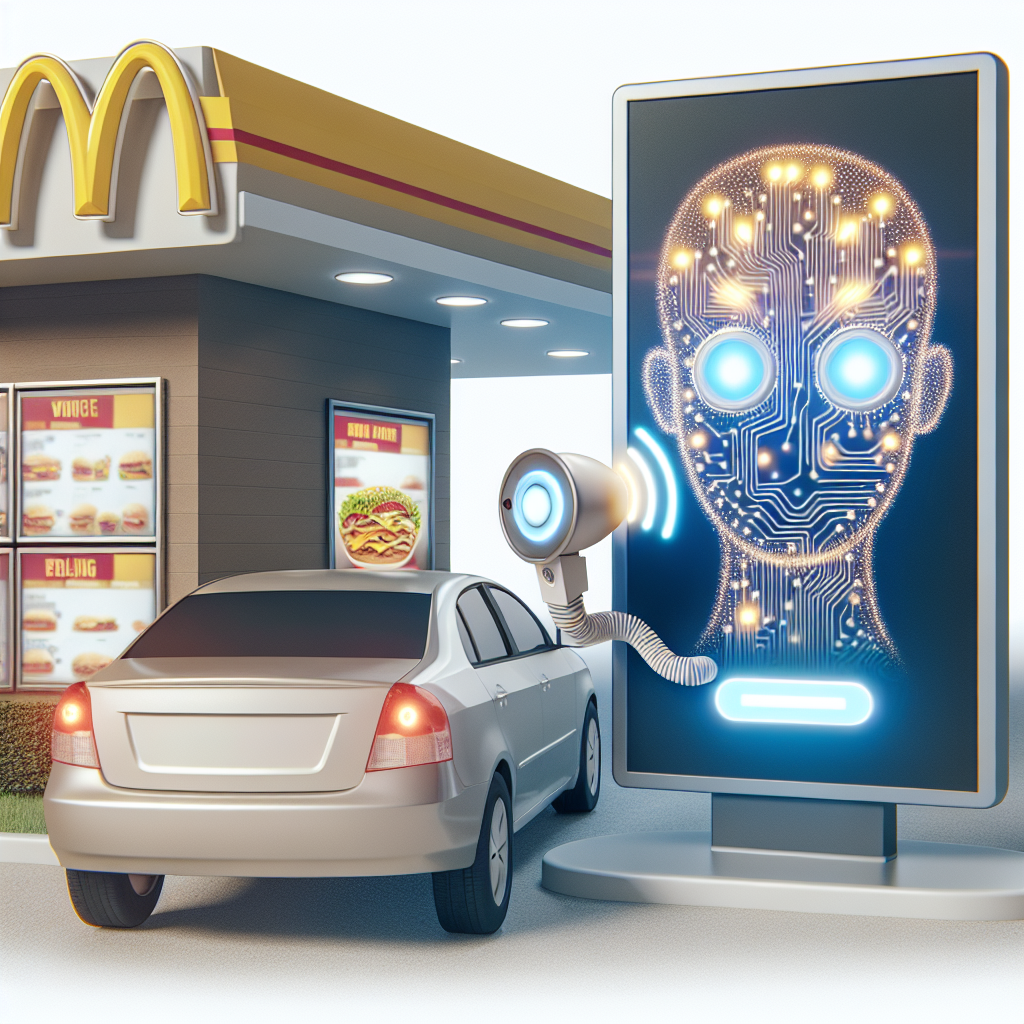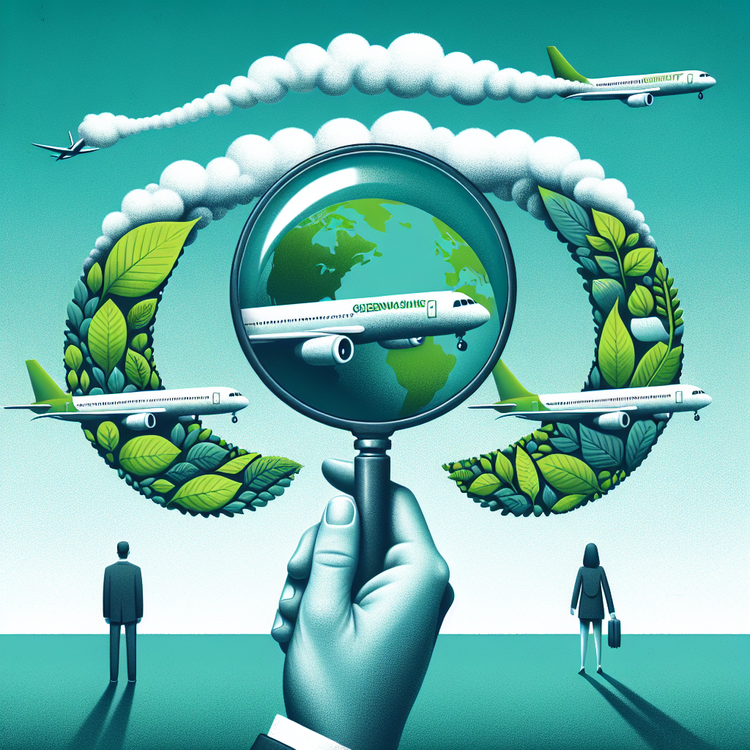Smart machines called “electronic noses” are getting better at smelling things quickly and correctly. These machines can find dangerous germs in food, like salmonella, by smelling the air around the food. A company in Israel made an electronic nose that can tell if food is safe in less than an hour. This is really helpful for people who make food because they can check if the food is good right away.
Many people get sick from bad food every year, and some even die. The electronic noses can help stop people from getting sick by checking the food faster than before. Usually, food makers have to wait a long time to know if their food is safe because they send it to a special place to be tested. But the electronic noses are cheaper and can be used right where the food is made, so they can find germs faster.
Some people who know a lot about smart machines aren’t sure if everyone will want to use electronic noses because they might cost a lot. But other people who make these machines think they are great and can do many things. A company in New Zealand made a very powerful smell sensor that works like a bug’s nose. These sensors can be used for many things, like making sure food tastes good, finding germs, checking if plants are healthy, and looking after the environment.
Original news source: The electronic noses designed to prevent food poisoning (BBC)
Listen
Slow
Normal
Fast
Group or Classroom Activities
Warm-up Activities:
– Charades
Instructions: Divide the class into two teams. Each team takes turns acting out a word or phrase related to the article using only gestures and body movements. The other team has to guess what they are acting out. The team with the most correct guesses wins.
– News Summary
Instructions: Divide the class into pairs. Each pair reads the article and then summarizes the main points in their own words. Then, they share their summaries with another pair and compare their responses. Finally, as a class, discuss the different summaries and identify the most important information.
– Opinion Poll
Instructions: Write the following statement on the board: “Do you think electronic noses are a useful tool for food safety?” Have the students go around the class and ask their classmates for their opinion on the statement. They can use the article as a reference to support their arguments. After gathering responses, have a class discussion about the different opinions and reasons behind them.
– Vocabulary Pictionary
Instructions: Divide the class into small groups. Give each group a list of vocabulary words from the article. One person from each group draws a picture to represent one of the words, while the rest of the group tries to guess what the word is. The group with the most correct guesses wins.
– Speed Summarizing
Instructions: Set a timer for 2 minutes. In pairs, students take turns summarizing the article as quickly and concisely as possible. After the 2 minutes are up, they switch roles and try to summarize again. The pair with the most accurate and concise summary wins.
Comprehension Questions:
1. What are electronic noses used for?
2. How can electronic noses help food makers?
3. Why do some people think electronic noses might be too expensive?
4. What can the smell sensors from New Zealand be used for?
5. How do electronic noses help stop people from getting sick?
6. What is one advantage of using electronic noses instead of sending food to a special place to be tested?
7. Why are electronic noses helpful for people who make food?
Go to answers ⇩
Listen and Fill in the Gaps:
Smart machines called “electronic noses” are (1)______ better at (2)______ things quickly and correctly. These machines can find dangerous (3)______ in food, like salmonella, by smelling the air around the food. A company in Israel made an electronic nose that can tell if food is safe in less than an hour. This is really helpful for people who (4)______ food because they can check if the food is good right away.
Many people get sick from bad food every year, and some even die. The electronic (5)______ can help stop people from getting sick by checking the food faster than before. Usually, food makers have to wait a (6)______ time to know if their food is safe because they (7)______ it to a special place to be tested. But the electronic noses are cheaper and can be used right where the food is made, so they can (8)______ germs faster.
Some (9)______ who know a lot about smart machines aren’t sure if everyone will want to use electronic noses because they might cost a lot. But other people who make these machines think they are (10)______ and can do many things. A (11)______ in New Zealand (12)______ a very powerful smell sensor that works like a bug’s nose. These sensors can be used for many things, like making sure food tastes good, finding germs, checking if plants are healthy, and looking after the environment.
Go to answers ⇩
Discussion Questions:
Students can ask a partner these questions, or discuss them as a group.
1. What is an electronic nose?
2. How do electronic noses help people who make food?
3. How would you feel if you found out that the food you ate was not safe?
4. Do you think it’s important for food makers to check if their food is safe? Why or why not?
5. What are some dangers of eating bad food?
6. Do you like the idea of using electronic noses to check food for germs? Why or why not?
7. What other things do you think electronic noses could be used for?
8. How do you think electronic noses can help protect the environment?
9. Have you ever gotten sick from eating bad food? How did it make you feel?
10. Would you be willing to pay more money for food that has been checked by an electronic nose? Why or why not?
11. Do you think electronic noses will become more popular in the future? Why or why not?
12. What do you think is the most important benefit of using electronic noses? Why?
Individual Activities
Vocabulary Meanings:
Match each word to its meaning.
Words:
1. electronic noses
2. dangerous
3. salmonella
4. germs
5. food makers
6. tested
7. sensors
8. environment
Meanings:
(a) Checked to see if something is safe
(b) People who make food
(c) Tiny things that can make you sick
(d) Machines that can smell things quickly and correctly
(e) The world around us, including plants and animals
(f) Not safe or harmful
(g) Devices that can detect smells
(h) A type of germ that can make you sick
Go to answers ⇩
Multiple Choice Questions:
1. What are electronic noses used for?
(a) Smelling flowers
(b) Finding dangerous germs in food
(c) Detecting bad smells in the air
(d) Checking if plants are healthy
2. How can electronic noses help prevent people from getting sick?
(a) By making food taste better
(b) By cleaning the air around the food
(c) By checking food faster than before
(d) By making sure plants are healthy
3. Why are electronic noses helpful for food makers?
(a) They can make the food taste better
(b) They can clean the air around the food
(c) They can find germs in the air
(d) They can check if the food is safe right away
4. What is one advantage of using electronic noses instead of sending food to a special place to be tested?
(a) They can make the food taste better
(b) They can clean the air around the food
(c) They are cheaper
(d) They can find germs in the air
5. What are some things that powerful smell sensors can be used for?
(a) Finding lost items, detecting bad smells, checking if plants are healthy, and looking after the environment
(b) Making sure food tastes good, finding germs, checking if plants are healthy, and looking after the environment
(c) Making sure food tastes good, finding lost items, checking if plants are healthy, and looking after the environment
(d) Making sure food tastes good, detecting bad smells, checking if plants are healthy, and looking after the environment
6. What are some concerns that people have about using electronic noses?
(a) They might cost a lot
(b) They might make food taste bad
(c) They might not be able to find germs
(d) They might break easily
7. What is one thing that electronic noses can help food makers with?
(a) Checking if the food is safe
(b) Making the food taste better
(c) Cleaning the air around the food
(d) Finding lost items
8. What is one advantage of using electronic noses over traditional methods of testing food safety?
(a) They can make the food taste better
(b) They can clean the air around the food
(c) They can find germs in the air
(d) They are cheaper
Go to answers ⇩
True or False Questions:
1. Electronic noses can only be used for limited purposes, and cannot be relied upon to ensure food tastes good, detect germs, check plant health or protect the environment.
2. Usually, food makers have to wait a long time to know if their food is safe because they send it to a special place to be tested.
3. Smart machines called “electronic noses” can smell things quickly and accurately.
4. Electronic noses are not helpful for food makers as they cannot quickly check if the food is good.
5. An Israeli company has created an electronic nose that can determine if food is safe in less than an hour.
6. Electronic noses cannot prevent people from getting sick, as they do not check the food faster than before.
7. Electronic noses are expensive and cannot be used right where the food is made, making them inefficient in finding germs.
8. These machines can detect dangerous germs in food, like salmonella, by smelling the air around the food.
Go to answers ⇩
Write a Summary:
Write a summary of this news article in two sentences.
Check your writing now with the best free AI for English writing!
Writing Questions:
Answer the following questions. Write as much as you can for each answer.
Check your answers with our free English writing assistant!
1. What are electronic noses?
2. How can electronic noses help people who make food?
3. Why are electronic noses important for stopping people from getting sick?
4. Why might some people not want to use electronic noses?
5. What are some other things that electronic noses can be used for?
Answers
Comprehension Question Answers:
1. What are electronic noses used for?
Electronic noses are used to smell things and detect different scents or odors.
2. How can electronic noses help food makers?
Electronic noses can help food makers by quickly and accurately detecting dangerous germs in food, like salmonella. This helps them ensure that the food they make is safe to eat.
3. Why do some people think electronic noses might be too expensive?
Some people think electronic noses might be too expensive because they are advanced machines that use special technology. This could make them costly to produce and purchase.
4. What can the smell sensors from New Zealand be used for?
The smell sensors from New Zealand can be used for many things, such as checking if food tastes good, finding germs, monitoring the health of plants, and protecting the environment.
5. How do electronic noses help stop people from getting sick?
Electronic noses help stop people from getting sick by quickly detecting dangerous germs in food. This allows food makers to identify and remove contaminated food before it reaches consumers.
6. What is one advantage of using electronic noses instead of sending food to a special place to be tested?
One advantage of using electronic noses instead of sending food to a special place to be tested is that they provide immediate results. Food makers don’t have to wait a long time to know if their food is safe because the electronic noses can be used right where the food is made.
7. Why are electronic noses helpful for people who make food?
Electronic noses are helpful for people who make food because they can quickly and accurately detect dangerous germs in the food. This helps ensure that the food is safe to eat and reduces the risk of people getting sick from consuming contaminated food.
Go back to questions ⇧
Listen and Fill in the Gaps Answers:
(1) getting
(2) smelling
(3) germs
(4) make
(5) noses
(6) long
(7) send
(8) find
(9) people
(10) great
(11) company
(12) made
Go back to questions ⇧
Vocabulary Meanings Answers:
1. electronic noses
Answer: (d) Machines that can smell things quickly and correctly
2. dangerous
Answer: (f) Not safe or harmful
3. salmonella
Answer: (h) A type of germ that can make you sick
4. germs
Answer: (c) Tiny things that can make you sick
5. food makers
Answer: (b) People who make food
6. tested
Answer: (a) Checked to see if something is safe
7. sensors
Answer: (g) Devices that can detect smells
8. environment
Answer: (e) The world around us, including plants and animals
Go back to questions ⇧
Multiple Choice Answers:
1. What are electronic noses used for?
Answer: (b) Finding dangerous germs in food
2. How can electronic noses help prevent people from getting sick?
Answer: (c) By checking food faster than before
3. Why are electronic noses helpful for food makers?
Answer: (d) They can check if the food is safe right away
4. What is one advantage of using electronic noses instead of sending food to a special place to be tested?
Answer: (c) They are cheaper
5. What are some things that powerful smell sensors can be used for?
Answer: (b) Making sure food tastes good, finding germs, checking if plants are healthy, and looking after the environment
6. What are some concerns that people have about using electronic noses?
Answer: (a) They might cost a lot
7. What is one thing that electronic noses can help food makers with?
Answer: (a) Checking if the food is safe
8. What is one advantage of using electronic noses over traditional methods of testing food safety?
Answer: (d) They are cheaper
Go back to questions ⇧
True or False Answers:
1. Electronic noses can only be used for limited purposes, and cannot be relied upon to ensure food tastes good, detect germs, check plant health or protect the environment. (Answer: False)
2. Usually, food makers have to wait a long time to know if their food is safe because they send it to a special place to be tested. (Answer: True)
3. Smart machines called “electronic noses” can smell things quickly and accurately. (Answer: True)
4. Electronic noses are not helpful for food makers as they cannot quickly check if the food is good. (Answer: False)
5. An Israeli company has created an electronic nose that can determine if food is safe in less than an hour. (Answer: True)
6. Electronic noses cannot prevent people from getting sick, as they do not check the food faster than before. (Answer: False)
7. Electronic noses are expensive and cannot be used right where the food is made, making them inefficient in finding germs. (Answer: False)
8. These machines can detect dangerous germs in food, like salmonella, by smelling the air around the food. (Answer: True)
Go back to questions ⇧















